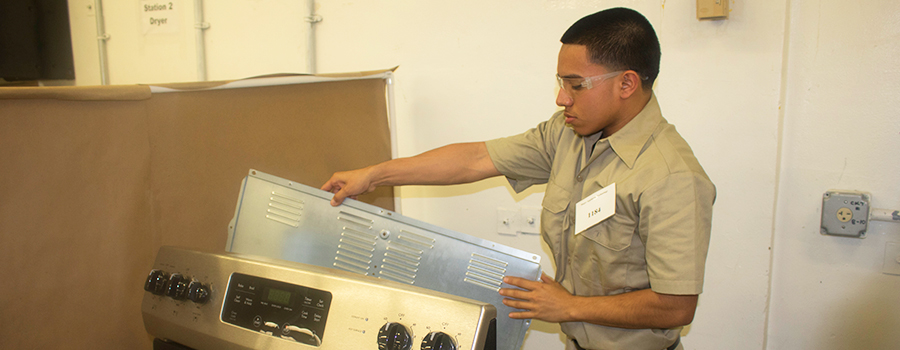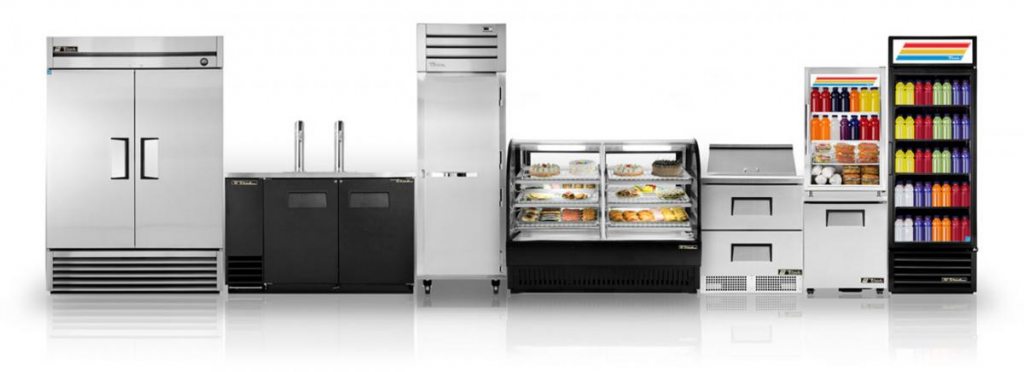Necessary Tips for Effective Ref Repair Work to Expand Appliance Lifespan
When it comes to your fridge, appropriate repair work and upkeep are important for long life. Recognizing typical issues and understanding when to act can make all the distinction.
Comprehending Common Refrigerator Problems
Fridges are vital in maintaining your food fresh, however they can encounter an array of common problems that disrupt their efficiency. If you observe food ruining quicker than normal, check the thermostat setups or think about if the door seals are damaged. Recognizing these problems early can save you time and money in repair services, guaranteeing your refrigerator runs efficiently and efficiently.
Normal Upkeep Practices
To maintain your home appliances running smoothly, you need to remain on top of routine maintenance techniques. Tidy the condenser coils, check the door seals, and check the temperature settings to guarantee peak efficiency. These easy tasks can conserve you time and money on repair services down the line.
Clean Condenser Coils Routinely
Cleaning your condenser coils on a regular basis can considerably enhance your appliance's performance. Dirt and dirt develop up on these coils over time, causing your appliance to work more difficult and take in more energy. To keep them clean, disconnect your home appliance and carefully eliminate any kind of safety covers.
Inspect Door Seals
3 easy steps can aid you guarantee your device's door seals are in good condition. Second, tidy the seals making use of cozy, soapy water to eliminate any kind of debris or crud. By following these actions, you'll preserve your device's performance and longevity, saving you money on energy costs and fixings in the lengthy run.
Monitor Temperature Level Setups
Routinely monitoring your appliance's temperature level settings is essential for ideal efficiency and efficiency. Whether you're taking care of a fridge, freezer, or oven, watching on these setups can avoid many issues. For refrigerators, go for temperature levels between 35 ° F and 38 ° F; for fridges freezer, linger 0 ° F. If the temperature levels are too expensive or low, your device may work harder, squandering energy and shortening its life expectancy. Make use of a thermometer to inspect these settings routinely, specifically after significant adjustments, like relocating your device or changing the thermostat. If you see changes, change the setups accordingly and get in touch with the individual guidebook for assistance. By remaining positive regarding temperature monitoring, you'll guarantee your devices run efficiently and last longer.
Troubleshooting Air Conditioning Issues
When your refrigerator isn't cooling effectively, it can cause ruined food and squandered cash, so dealing with the issue immediately is essential. Beginning by checking the temperature level settings to validate they're at the suggested degrees, usually around 37 ° F for the fridge and 0 ° F for the fridge freezer. If the settings are proper, inspect the door seals for any type of voids or damage; a malfunctioning seal can permit cozy air to get in.
Inspect the condenser coils, normally situated at the back or bottom of the unit. Clean them with a vacuum or brush to enhance performance. If issues persist, it may be time to call an expert.
Fixing Water Leakage and Ice Build-Up
If you're managing water leakage or ice build-up in your home appliance, it's necessary to recognize the resource of the issue. By identifying where the water is originating from, you can prevent more concerns and avoid expensive repair services. Let's check out some effective strategies to deal with these typical issues.
Determine Leakage Resources
Just how can you successfully identify the sources of water leak and ice accumulation in your appliances? Begin by inspecting the seals and gaskets on your refrigerator and freezer doors. By methodically checking these locations, you'll pinpoint the source of the trouble, enabling you to take the necessary steps to repair it and expand your home appliance's life-span.
Stop Ice Formation
To avoid ice development in your appliances, start by verifying the temperature setups are appropriate. If your fridge or fridge freezer is too cool, it can lead to extreme ice accumulation. Examine the door seals on a regular basis; damaged seals can allow cozy air in, creating condensation and ice development.
Keep the device well-ventilated and stay clear of overcrowding, as this can obstruct airflow - Appliance Repair Oro Valley Dependable Appliance Services. Routinely thaw your fridge freezer if it does not have an automatic defrost feature.
If you see water leak, recognize and take care of any type of blocked water drainage openings, as they can add to ice accumulation. Clean the coils and validate they're working appropriately to keep peak performance. Taking these steps will certainly assist prolong your home appliance's life expectancy and efficiency.
Dealing With Noisy Refrigerator Appears
While it may seem alarming, a loud refrigerator usually indicates small concerns rather than major breakdowns. Usual culprits consist of the compressor, fans, and water lines.
Following, look for loose things inside. Often, containers or racks can rattle, developing undesirable sound. Tighten up or rearrange them to eliminate the audios.
If you notice a clicking sound, it could be the defrost timer. This is usually safe but might suggest it requires assessment.
Lastly, verify your refrigerator is degree. An unbalanced appliance can generate resonances and noise. Utilize a degree to check, and adjust the feet if required. Dealing with these concerns promptly can assist preserve your refrigerator's efficiency and lengthen its lifespan.
When to Change Components vs. Full Replacement

Nonetheless, if your home appliance is older and experiencing multiple concerns, a full substitute can be a lot more affordable. Consider the price of repair work versus the device's worth. If fixings surpass 50% of a brand-new system's rate, it's normally Washing Machine Repair Dependable Refrigeration & Appliance Repair Service wiser to purchase a substitute. Additionally, if you see ongoing troubles that keep persisting, it's a sign that your appliance has actually reached the end of its life. Weigh these elements very carefully to make the most effective decision for your demands and budget.
Understanding When to Call a Specialist
Exactly how can you inform when it's time to call in an expert for device repair service? If your home appliance stops working entirely or often journeys circuit breakers, it's another red flag.
You ought to also consider your own convenience degree with repair services. If you're unsure regarding detecting the trouble or lack the right devices, it's ideal to reach out for assistance. Keep in mind, attempting challenging repair services can bring about even more damages and even security dangers.

Frequently Asked Questions
How Usually Should I Tidy the Fridge Coils?
You ought to clean your fridge coils every six months. This aids preserve efficiency and prevents getting too hot. If you discover too much dust or pet hair, tidy them a lot more frequently to assure your fridge runs efficiently.

Can I Make Use Of Vinegar for Cleaning My Fridge?
Yes, you can utilize vinegar to cleanse your refrigerator! It's a superb natural cleanser that eliminates smells and spots. Best Appliance Repair Near You Dependable Refrigeration & Appliance Repair Service. Just mix it with water, use it to surface areas, and wipe down for a fresh, clean fridge
What Temperature level Should My Fridge Be Set To?
You ought to establish your refrigerator to 37 ° F(3 ° C) for optimal food preservation. This temperature level keeps your food fresh while stopping spoilage, guaranteeing your groceries last much longer and minimizing waste. It's an easy adjustment you can make!
Does a Refrigerator Need to Be Leveled?
Yes, your refrigerator requires to be leveled. If it's uneven, it can affect cooling down efficiency and cause excess noise. Check the progressing legs and change them to assure correct equilibrium for perfect performance.
Exactly How Can I Decrease Fridge Power Intake?
To lower your fridge's power usage, maintain it clean and well-ventilated, inspect door seals for leakages, set the temperature between 35-38 ° F, and avoid overloading it. These steps can considerably lower your energy costs.